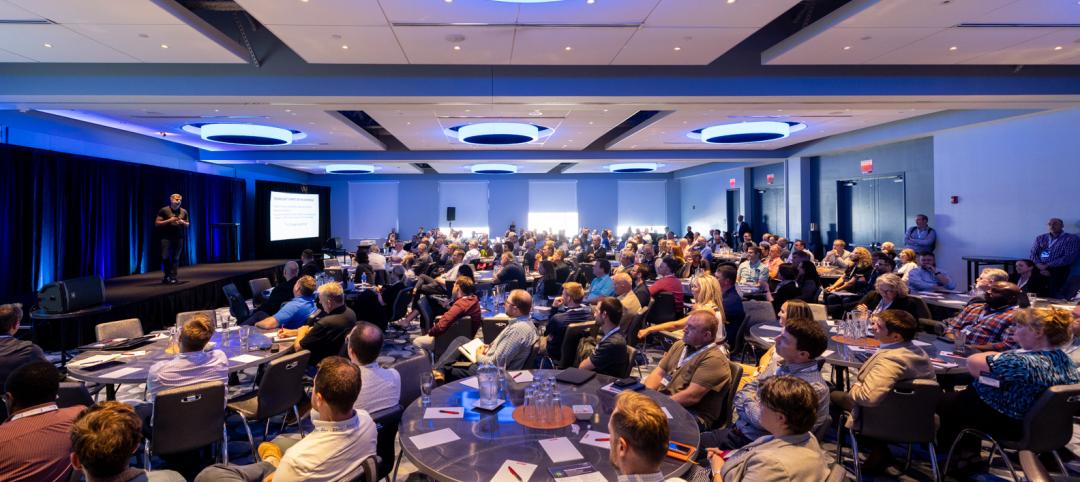The National Council of Architectural Registration Boards (NCARB) has launched the first phase of its revised certification path for architects without a degree from a program accredited by the National Architectural Accrediting Board (NAAB). The NCARB Certificate facilitates reciprocal licensure among the 54 U.S. jurisdictions and several countries.
Through this alternative, architects licensed in a U.S. jurisdiction who hold an architecture-related degree can satisfy the Certificate’s education requirement by documenting two times the Architectural Experience Program’sTM (AXPTM) requirements (7,480 hours). A separate certification option for U.S. architects without an architecture-related degree will launch in spring.
These education alternatives replace a previous option known as the Broadly Experienced Architect (BEA) Program, which cost $5,000 plus transcript review fees. Additionally, these revised paths will lead to a shorter evaluation process, and will be offered at no additional charge to active NCARB Record holders. The changes were adopted by a vote of the NCARB membership in June 2016 at its Annual Business Meeting.
“This revised path recognizes the value of the initial license and practical experience while maintaining a rigorous, yet inclusive, option for architects seeking NCARB certification,” said NCARB President Kristine A. Harding, NCARB, AIA.
U.S. architects interested in earning an NCARB Certificate through this path must meet the following requirements:
- Have at least three years of continuous licensure in any U.S. jurisdiction without disciplinary action.
- Hold a bachelor’s degree in an architecture-related program.
To learn more about the benefits of NCARB certification, visit www.ncarb.org/certificat
Related Stories
AEC Tech Innovation | Jul 4, 2024
Caution competes with inevitability at conference exploring artificial intelligence for design and construction
Hosted by PSMJ, AEC Innovate in Boston found an AEC industry anxiously at the threshold of change.
Building Team | Jul 3, 2024
So you want to get published: What’s next?
In the AEC industry, securing media attention is no longer a niche endeavor but an essential component of a holistic marketing strategy.
Laboratories | Jul 3, 2024
New science, old buildings: Renovating for efficiency, flexibility, and connection
What does the research space of the future look like? And can it be housed in older buildings—or does it require new construction?
MFPRO+ New Projects | Jul 2, 2024
Miami residential condo tower provides a deeded office unit for every buyer
A new Miami residential condo office tower sweetens the deal for buyers by providing an individual, deeded and furnished office with each condo unit purchased. One Twenty Brickell Residences, a 34-story, 240-unit tower, also offers more than 60,000 sf of exclusive residential amenities.
Student Housing | Jul 1, 2024
Two-tower luxury senior living community features wellness and biophilic elements
A new, two-building, 27-story senior living community in Tysons, Va., emphasizes wellness and biophilic design elements. The Mather, a luxury community for adults aged 62 and older, is situated on a small site surrounded by high-rises.
Office Buildings | Jul 1, 2024
Mastering office layouts: 5 primary models for maximum efficiency and productivity
When laying out an office, there are many factors to consider. It’s important to maximize the space, but it’s equally important to make sure the design allows employees to work efficiently.
Smart Buildings | Jul 1, 2024
GSA to invest $80 million on smart building technologies at federal properties
The U.S. General Services Administration (GSA) will invest $80 million from the Inflation Reduction Act (IRA) into smart building technologies within 560 federal buildings. GSA intends to enhance operations through granular controls, expand available reporting with more advanced metering sources, and optimize the operator experience.
Sustainability | Jul 1, 2024
Amazon, JPMorgan Chase among companies collaborating with ILFI to advance carbon verification
Four companies (Amazon, JPMorgan Chase, JLL, and Prologis) are working with the International Living Future Institute to support development of new versions of Zero Carbon Certification.
K-12 Schools | Jul 1, 2024
New guidelines for securing schools and community spaces released by the Door Security and Safety Foundation
The Door Security and Safety Foundation (DSSF), in collaboration with Door and Hardware Institute (DHI), recently released of “Are Your Door Openings Secure?.” The document provides guidelines to equip school administrators, building management personnel, and community leaders with a clear roadmap to create a secure and safe environment.
Products and Materials | Jun 30, 2024
Top products from AIA 2024
This month, Building Design+Construction editors are bringing you the top products displayed at the 2024 AIA Conference on Architecture & Design. Nearly 550 building product manufacturers showcased their products—here are 17 that caught our eye.

















